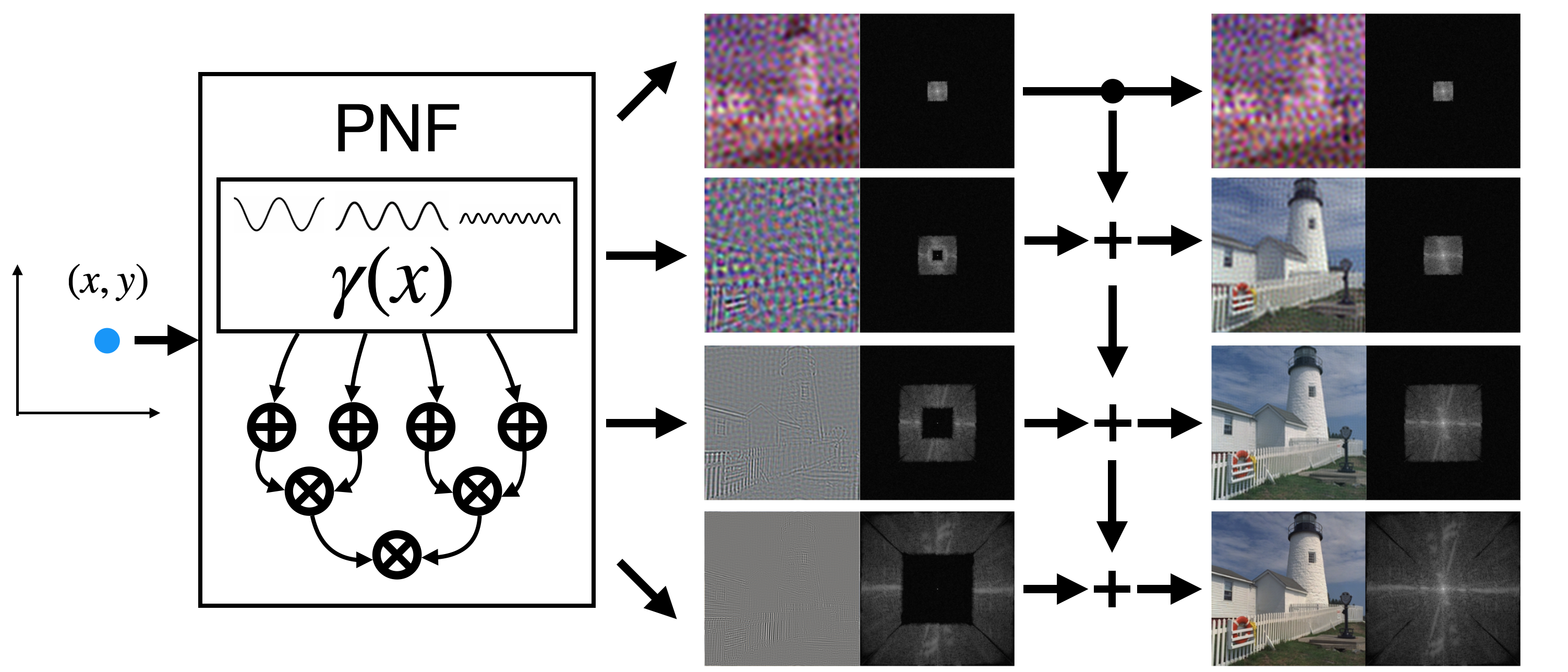Polynomial Neural Fields
for Subband Decomposition and Manipulation

Polynomial Neural Fields
for Subband Decomposition and Manipulation

Neural fields have emerged as a new paradigm for representing signals, thanks to their ability to do it compactly while being easy to optimize. In most applications, however, neural fields are treated like a black box, which precludes many signal manipulation tasks. In this paper, we propose a new class of neural fields called basis-encoded polynomial neural fields (PNFs). The key advantage of a PNF is that it can represent a signal as a composition of a number of manipulable and interpretable components without losing the merits of neural fields representation. We develop a general theoretical framework to analyze and design PNFs. We use this framework to design Fourier PNFs, which match state-of-the-art performance in signal representation tasks that use neural fields. In addition, we empirically demonstrate that Fourier PNFs enable signal manipulation applications such as texture transfer and scale-space interpolation.
Video
Acknowledgements
This research was supported by the Pioneer Centre for AI, DNRF grant number P1. Guandao’s PhD was supported in part by research gifts from Google, Intel, and Magic Leap. Experiments are supported in part by Google clouds platform and GPUs donated by NVIDIA.